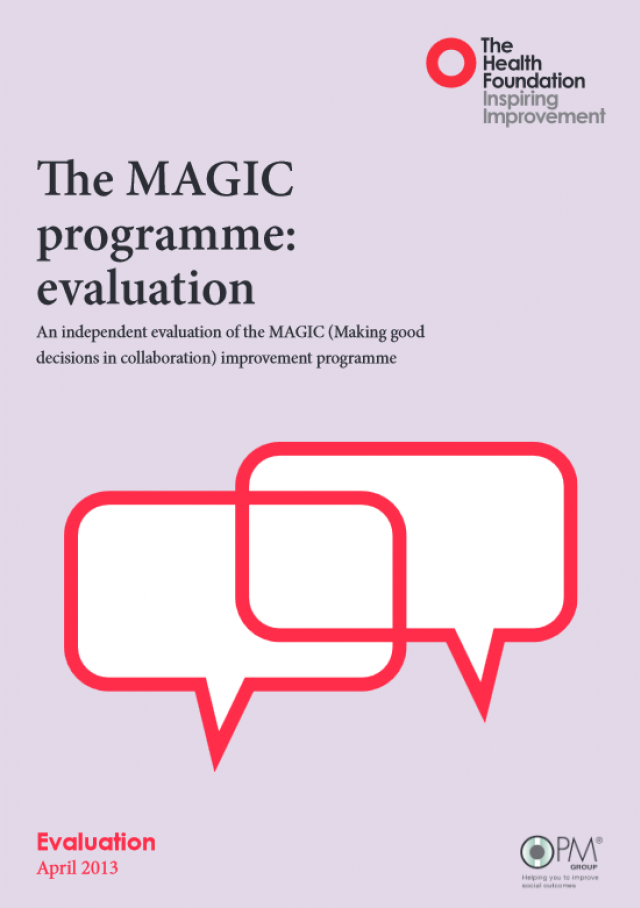The MAGIC programme: Evaluation An independent evaluation of the MAGIC (Making good decisions in collaboration) improvement programme
April 2013

Key points
- While there are challenges to making shared decision-making a reality, and it can be hard and slow to do, shared decision-making can create positive change within health systems and individual patients.
- It takes time to create culture change and to embed across a system.
- Starting small can support successful implementation – starting with a particular patient group or clinical specialism and then expanding when you are more confident with what you are doing.
Shared decision making is a process in which clinicians and patients work together to choose tests, treatments, management, or support packages, based on clinical evidence and patients’ informed preferences. It involves the provision of evidence-based information about options, outcomes and uncertainties, together with decision support counselling and systems for recording and implementing patients’ treatment preferences.
The Health Foundation's MAGIC (Making good decisions in collaboration) programme aims to support clinical teams in primary and secondary care to embed shared decision making with patients in their everyday practice. This independent evaluation by the Office for Public Management (OPM) covers the first phase of the programme.
True shared decision-making is more than introducing a set of tools. A combination of changes in attitude, skills and infrastructure is required to effectively facilitate shared decision-making.
Clinicians can think that they are already doing shared decision-making effectively, but once they really understand what it is, they see that it is a lot more than just good communication skills. Training delivered as part of the MAGIC programme enabled people to think differently and demonstrated how shared decision making is different to their current practice, which helped to change attitudes and practice.
The evaluation team also interviewed a number of clinicians and patients to produced seven improvement stories, exploring their experiences of implementing shared decision-making in practice. These stories form the basis of our Learning Report, Implementing Shared Decision Making.
Additional person-centred care resources
If you’re interested in person-centred care then take a look at our dedicated Person-centred care resource centre for hundreds of practical tools, materials and downloads.
Further reading
Work with us
We look for talented and passionate individuals as everyone at the Health Foundation has an important role to play.
View current vacanciesThe Q community
Q is an initiative connecting people with improvement expertise across the UK.
Find out more

